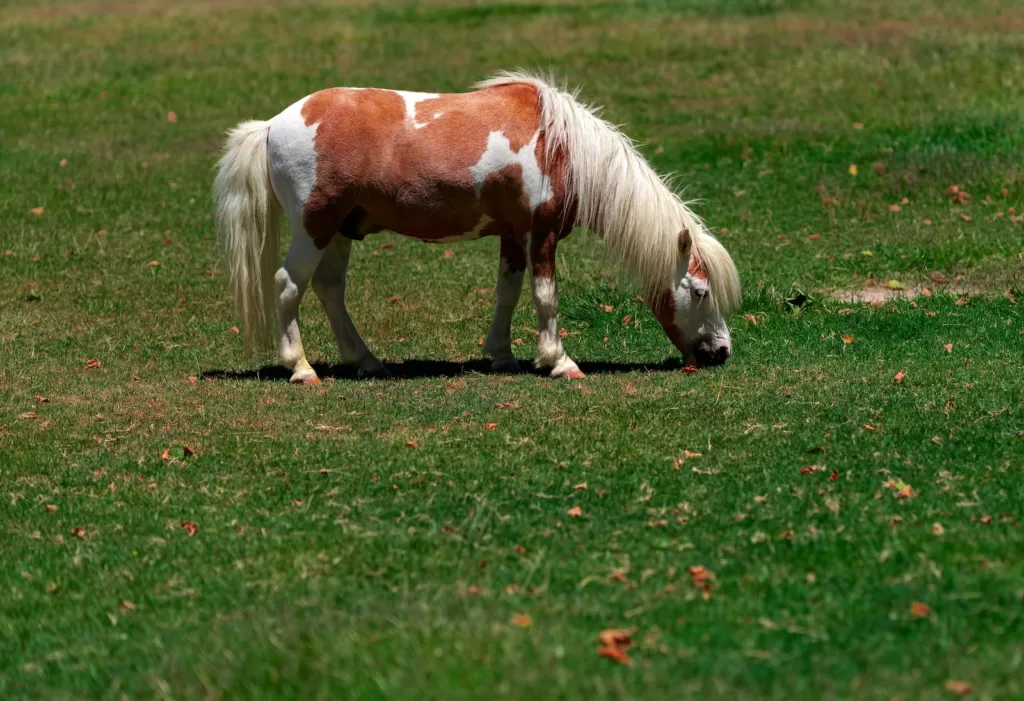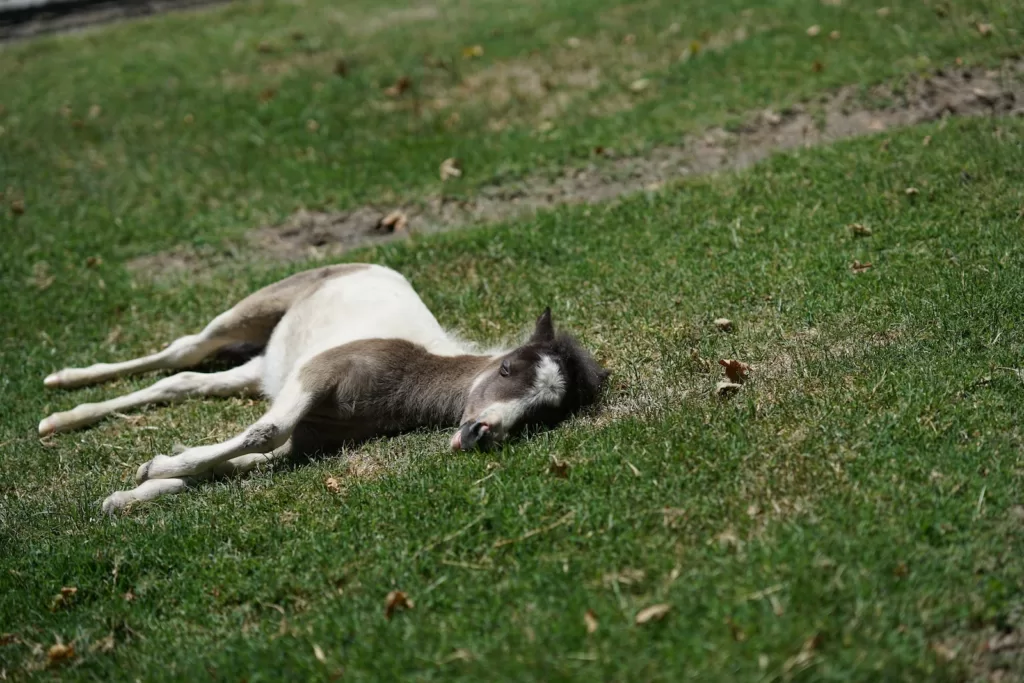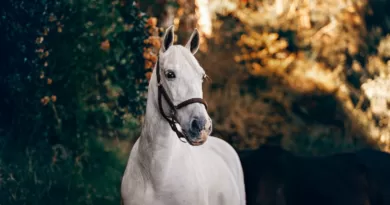How Long Do Miniature Horses Live: A Comprehensive Guide
When it comes to the world of equines, miniature horses stand out as delightful and endearing creatures. Their pint-sized stature and charming personalities make them a favorite among horse enthusiasts and animal lovers alike. But if you’re considering bringing one of these tiny equines into your life, you might be wondering, “How long do miniature horses live?”
In this comprehensive guide, we’ll explore the lifespan of miniature horses, factors influencing their longevity, tips for their care, and answer some frequently asked questions about these miniature wonders. So, saddle up, and let’s embark on this journey into the world of miniature horse lifespans!
Understanding the Lifespan of Miniature Horses
The Average Lifespan
Miniature horses, as their name suggests, are a diminutive version of their full-sized counterparts. These tiny equines have a lifespan that generally ranges from 25 to 35 years. This longevity often surprises many, as it exceeds the lifespan of many other small domesticated animals.
The average lifespan of miniature horses is influenced by various factors, including genetics, diet, healthcare, and living conditions. Let’s delve deeper into these factors to understand what contributes to their extended lifespans.
Genetics: A Key Player
Genetics play a significant role in determining how long a miniature horse will live. Breeding practices, bloodlines, and inherited traits can all influence their overall health and longevity. Reputable breeders carefully select their breeding pairs to minimize genetic predispositions to health issues and maximize the chances of producing healthy, long-lived miniature horses.
Diet and Nutrition
Just like their larger counterparts, miniature horses require a balanced and nutritious diet to thrive and live a long life. A diet rich in high-quality hay, fresh grass, and specially formulated miniature horse pellets is essential. Proper nutrition helps prevent obesity, dental issues, and metabolic problems, all of which can impact a miniature horse’s lifespan.
Healthcare and Veterinary Care
Routine healthcare and regular veterinary check-ups are crucial for the well-being of miniature horses. Vaccinations, deworming, dental care, and hoof maintenance are all part of a comprehensive healthcare regimen. Timely medical attention and preventative measures can help extend their lifespan by identifying and addressing potential health issues early.
Living Conditions and Environment
The environment in which a miniature horse lives also plays a vital role in determining how long they will live. Providing them with safe, clean, and well-maintained living quarters is essential. Protection from extreme weather conditions, access to clean water, and proper shelter contribute to their overall health and longevity.
See Also: How long do horses live? Amazing Facts About Horses’ Life
Frequently Asked Questions About Miniature Horse Lifespans
1. What Is the Oldest Recorded Age of a Miniature Horse?
The oldest recorded age of a miniature horse is an astounding 56 years! This remarkable feat can be attributed to exceptional care, genetics, and a bit of luck. While it’s rare for miniature horses to live this long, it serves as a testament to their potential longevity when provided with the right conditions.
2. Do Miniature Horses Live Longer Than Full-Sized Horses?
In general, miniature horses have the potential to live longer than their full-sized counterparts. While the average lifespan of a full-sized horse typically ranges from 25 to 30 years, miniature horses often surpass this range. However, individual lifespans can vary significantly based on factors such as genetics and care.
3. How Can I Ensure a Long and Healthy Life for My Miniature Horse?
Ensuring a long and healthy life for your miniature horse involves several key steps:
- Provide a balanced diet: Ensure your miniature horse receives the right nutrition to maintain a healthy weight and prevent diet-related health issues.
- Regular veterinary care: Schedule routine check-ups and vaccinations to catch and address health issues early.
- Proper shelter: Offer protection from extreme weather conditions, ensuring your miniature horse has a safe and comfortable environment.
- Exercise and mental stimulation: Encourage physical activity and mental engagement to keep your miniature horse active and happy.
- Social interaction: Miniature horses are social animals, so provide them with companionship to prevent loneliness and stress.
4. Are Miniature Horses Prone to Specific Health Issues?
Miniature horses are prone to certain health issues, including:
- Obesity: Due to their small size, they can gain weight quickly. Proper diet and exercise are essential to prevent obesity.
- Dental problems: Dental issues can occur, so regular dental check-ups are crucial.
- Laminitis: This painful hoof condition can affect miniature horses, particularly if they consume excess carbohydrates or are overweight.
- Metabolic disorders: Some miniature horses are prone to metabolic disorders, such as insulin resistance. Careful monitoring and management are necessary.
5. Can Miniature Horses Live Alone, or Do They Need Companions?
Miniature horses are highly social animals and thrive when they have companionship. It’s generally recommended to keep them with other miniature horses or compatible animals like ponies or donkeys. Loneliness and isolation can lead to stress and health issues, so providing a companion can enhance their quality of life and potentially contribute to a longer lifespan.
6. What Factors Can Shorten a Miniature Horse’s Lifespan?
Several factors can potentially shorten the lifespan of a miniature horse:
- Neglect: Lack of proper care, nutrition, and medical attention can significantly impact their lifespan.
- Stress: High levels of stress due to isolation, overcrowding, or a hostile living environment can lead to health issues that reduce their lifespan.
- Injuries: Accidents or injuries can be life-threatening if not treated promptly and effectively.
- Genetic Disorders: Inherited genetic disorders can affect some miniature horses, potentially leading to a shorter life.
7. Can Miniature Horses Have a Good Quality of Life in Old Age?
Yes, miniature horses can maintain a good quality of life well into their senior years with the right care. Proper nutrition, exercise, and medical attention can help manage age-related issues and ensure they continue to enjoy their golden years.
8. Are Miniature Horses Suitable as Pets for Children?
Miniature horses can make wonderful pets for families with children, but it’s essential to teach kids how to interact with them safely and respectfully. Supervision is crucial, as even miniature horses can be strong and unpredictable at times. With the right guidance, they can be gentle and loving companions for kids.
9. How Can I Determine the Age of a Miniature Horse?
Determining the age of a miniature horse can be done through several methods:
- Dental Examination: A veterinarian can estimate their age by examining the condition and wear of their teeth.
- Registration Papers: If the horse has registration papers, they often include the birthdate.
- Microchips: Some miniature horses have microchips with recorded birthdates for identification.
10. Can Miniature Horses Be Used for Work or Therapy in Their Old Age?
Yes, some miniature horses continue to be used for therapy work, especially if they are in good health and have a gentle temperament. Their small size and friendly nature make them ideal candidates for providing emotional support and comfort to people in need, even as they age.
Conclusion
So, how long do miniature horses live? On average, these pint-sized equines can enjoy a lifespan of 25 to 35 years, with proper care and attention. Genetics, diet, healthcare, and living conditions all play a pivotal role in determining the longevity of miniature horses.
If you’re considering bringing one of these charming creatures into your life, remember to provide them with the best possible care, including a balanced diet, regular veterinary check-ups, and a safe and comfortable living environment. By doing so, you can increase the odds of your miniature horse living a long, healthy, and happy life.
If you have any more questions about miniature horse lifespans or any other related topics, feel free to ask in the comments section below. Your curiosity drives us to explore and learn more about these amazing animals.
Enjoyed this article? You May Also Like:
- Learn in 5 minutes about Cryotherapy for Horses
- Penicillin in Horses; Impeccable Guide in 10 minutes
- Excede Antibiotic For Horses, Fantastic Facts in 5 minutes
- The Science of Oxytocin in Horses: How This Hormone Influences Equine Behavior
- Can Horses Swim? Everything You Need To Know About Horse Swimming






